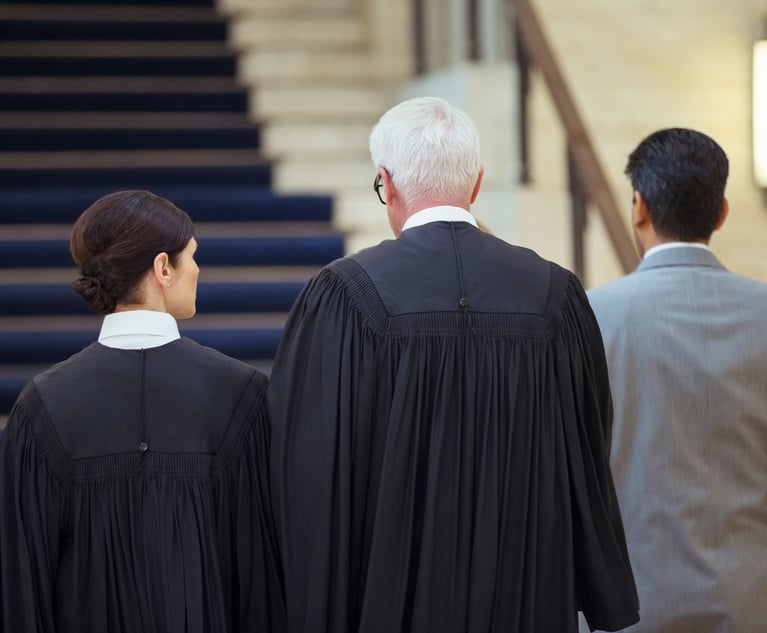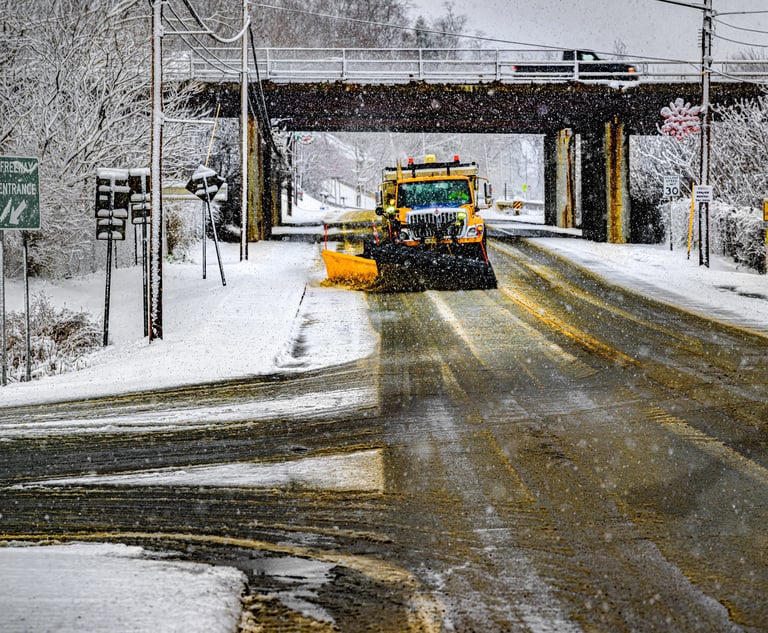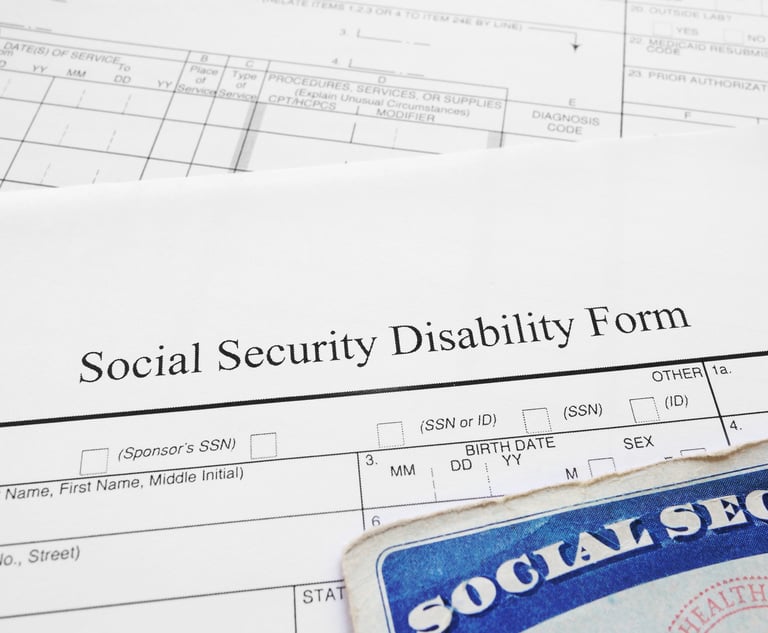Judicial Ethics Opinion 19-129
A judge, who is not in his/her window period for election or re-election to judicial office, may not participate in an event sponsored by a local political party in which children would meet with local judges to learn about the court system.
July 10, 2020 at 05:50 AM
4 minute read
The Advisory Committee on Judicial Ethics responds to written inquiries from New York state's approximately 3,600 judges and justices, as well as hundreds of judicial hearing officers, support magistrates, court attorney-referees, and judicial candidates (both judges and non-judges seeking election to judicial office). The committee interprets the Rules Governing Judicial Conduct (22 NYCRR Part 100) and, to the extent applicable, the Code of Judicial Conduct. The committee consists of 27 current and retired judges, and is co-chaired by former associate justice George D. Marlow of the Appellate Division and the Honorable Margaret Walsh, a justice of the Supreme Court.
Digest: A judge, who is not in his/her window period for election or re-election to judicial office, may not participate in an event sponsored by a local political party in which children would meet with local judges to learn about the court system.
Rules: 22 NYCRR 100.0(Q); 100.2; 100.2(A); 100.2(C); 100.5(A)(1)-(2); 100.5(A)(1)(g), (i); Opinions 13-22; 07-211; 06-71; 88-136; 88-32.
Opinion: A judge's local political party wishes to organize an event in which children would meet with local judges to learn about the court system. It would be one of a series of events intended to introduce children to civic engagement. Prior events have included meetings with other elected officials, visits to government workplaces and offices, and tours of public and semi-public facilities. The judge is not in his/her window period for election or re-election.
A judge must always avoid even the appearance of impropriety (see 22 NYCRR 100.2) and must always act in a manner that promotes public confidence in the judiciary's integrity and impartiality (see 22 NYCRR 100.2[A]). A judge must not convey or permit others to convey the impression that they are in a special position to influence the judge (see 22 NYCRR 100.2[C]). A sitting judge is prohibited from engaging either directly or indirectly in any political activity, except in furtherance of his or her own campaign for election or re-election during the applicable window period, which is not applicable here (see 22 NYCRR 100.5[A][1]-[2]; 100.0[Q]). Outside the applicable window period, a judge must not attend politically sponsored events, even for a non-political purpose (see 22 NYCRR 100.5[A][1][g], [i]).
Applying these rules, we have said a judge who is not in his/her window period for election may not attend or participate in an event sponsored by a political organization, even for an otherwise permissible non-political purpose (see e.g. Opinions 06-71 [judge may not attend a political club's meeting to administer the oath of office to its president-elect]; 88-136 [judge may not speak at a political club about the function of the Family Court]; 88-32 [judge may not speak at a political club about the legal system]; 07-211 [judge may not attend a politically sponsored holiday party]; 13-22 [judge may not participate in a politically sponsored sporting event in which one local political party's team will compete against another local political party's team, where the purpose of the event is to improve both parties' public image]).
The proposed event appears to have a non-partisan purpose: introducing children to civic engagement and educating them about the court system. However, it remains a politically sponsored event and is, therefore, impermissible for a judge outside his/her window period (see e.g. Opinions 88-136 [judge may not speak at a political club about the function of the Family Court]; 88-32 [judge may not speak at a political club about the legal system]).
Finally, the judge asks if co-sponsorship by the two major political parties would eliminate any prohibition. We have advised that a judge may not participate in a politically sponsored sporting event, which was co-sponsored by two political parties, when the purpose of the event was to "improve [the] public image" of both parties (Opinion 13-22). Here, too, co-sponsorship would not cure the appearance of impropriety.
Thus, the judge may not participate in the proposed event.
This content has been archived. It is available through our partners, LexisNexis® and Bloomberg Law.
To view this content, please continue to their sites.
Not a Lexis Subscriber?
Subscribe Now
Not a Bloomberg Law Subscriber?
Subscribe Now
NOT FOR REPRINT
© 2024 ALM Global, LLC, All Rights Reserved. Request academic re-use from www.copyright.com. All other uses, submit a request to [email protected]. For more information visit Asset & Logo Licensing.
You Might Like
View AllTrending Stories
- 1Call for Nominations: Elite Trial Lawyers 2025
- 2Senate Judiciary Dems Release Report on Supreme Court Ethics
- 3Senate Confirms Last 2 of Biden's California Judicial Nominees
- 4Morrison & Foerster Doles Out Year-End and Special Bonuses, Raises Base Compensation for Associates
- 5Tom Girardi to Surrender to Federal Authorities on Jan. 7
Who Got The Work
Michael G. Bongiorno, Andrew Scott Dulberg and Elizabeth E. Driscoll from Wilmer Cutler Pickering Hale and Dorr have stepped in to represent Symbotic Inc., an A.I.-enabled technology platform that focuses on increasing supply chain efficiency, and other defendants in a pending shareholder derivative lawsuit. The case, filed Oct. 2 in Massachusetts District Court by the Brown Law Firm on behalf of Stephen Austen, accuses certain officers and directors of misleading investors in regard to Symbotic's potential for margin growth by failing to disclose that the company was not equipped to timely deploy its systems or manage expenses through project delays. The case, assigned to U.S. District Judge Nathaniel M. Gorton, is 1:24-cv-12522, Austen v. Cohen et al.
Who Got The Work
Edmund Polubinski and Marie Killmond of Davis Polk & Wardwell have entered appearances for data platform software development company MongoDB and other defendants in a pending shareholder derivative lawsuit. The action, filed Oct. 7 in New York Southern District Court by the Brown Law Firm, accuses the company's directors and/or officers of falsely expressing confidence in the company’s restructuring of its sales incentive plan and downplaying the severity of decreases in its upfront commitments. The case is 1:24-cv-07594, Roy v. Ittycheria et al.
Who Got The Work
Amy O. Bruchs and Kurt F. Ellison of Michael Best & Friedrich have entered appearances for Epic Systems Corp. in a pending employment discrimination lawsuit. The suit was filed Sept. 7 in Wisconsin Western District Court by Levine Eisberner LLC and Siri & Glimstad on behalf of a project manager who claims that he was wrongfully terminated after applying for a religious exemption to the defendant's COVID-19 vaccine mandate. The case, assigned to U.S. Magistrate Judge Anita Marie Boor, is 3:24-cv-00630, Secker, Nathan v. Epic Systems Corporation.
Who Got The Work
David X. Sullivan, Thomas J. Finn and Gregory A. Hall from McCarter & English have entered appearances for Sunrun Installation Services in a pending civil rights lawsuit. The complaint was filed Sept. 4 in Connecticut District Court by attorney Robert M. Berke on behalf of former employee George Edward Steins, who was arrested and charged with employing an unregistered home improvement salesperson. The complaint alleges that had Sunrun informed the Connecticut Department of Consumer Protection that the plaintiff's employment had ended in 2017 and that he no longer held Sunrun's home improvement contractor license, he would not have been hit with charges, which were dismissed in May 2024. The case, assigned to U.S. District Judge Jeffrey A. Meyer, is 3:24-cv-01423, Steins v. Sunrun, Inc. et al.
Who Got The Work
Greenberg Traurig shareholder Joshua L. Raskin has entered an appearance for boohoo.com UK Ltd. in a pending patent infringement lawsuit. The suit, filed Sept. 3 in Texas Eastern District Court by Rozier Hardt McDonough on behalf of Alto Dynamics, asserts five patents related to an online shopping platform. The case, assigned to U.S. District Judge Rodney Gilstrap, is 2:24-cv-00719, Alto Dynamics, LLC v. boohoo.com UK Limited.
Featured Firms
Law Offices of Gary Martin Hays & Associates, P.C.
(470) 294-1674
Law Offices of Mark E. Salomone
(857) 444-6468
Smith & Hassler
(713) 739-1250










